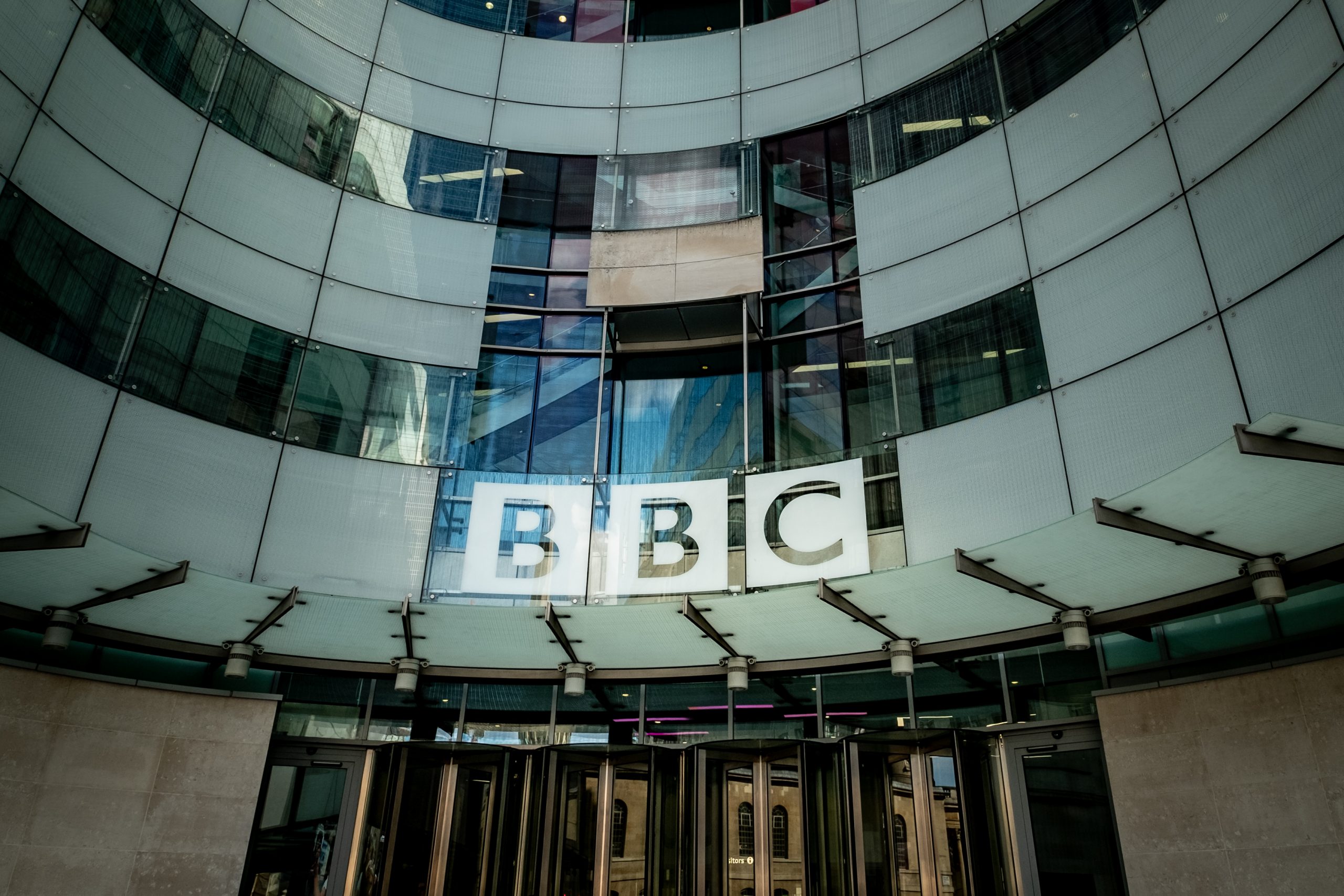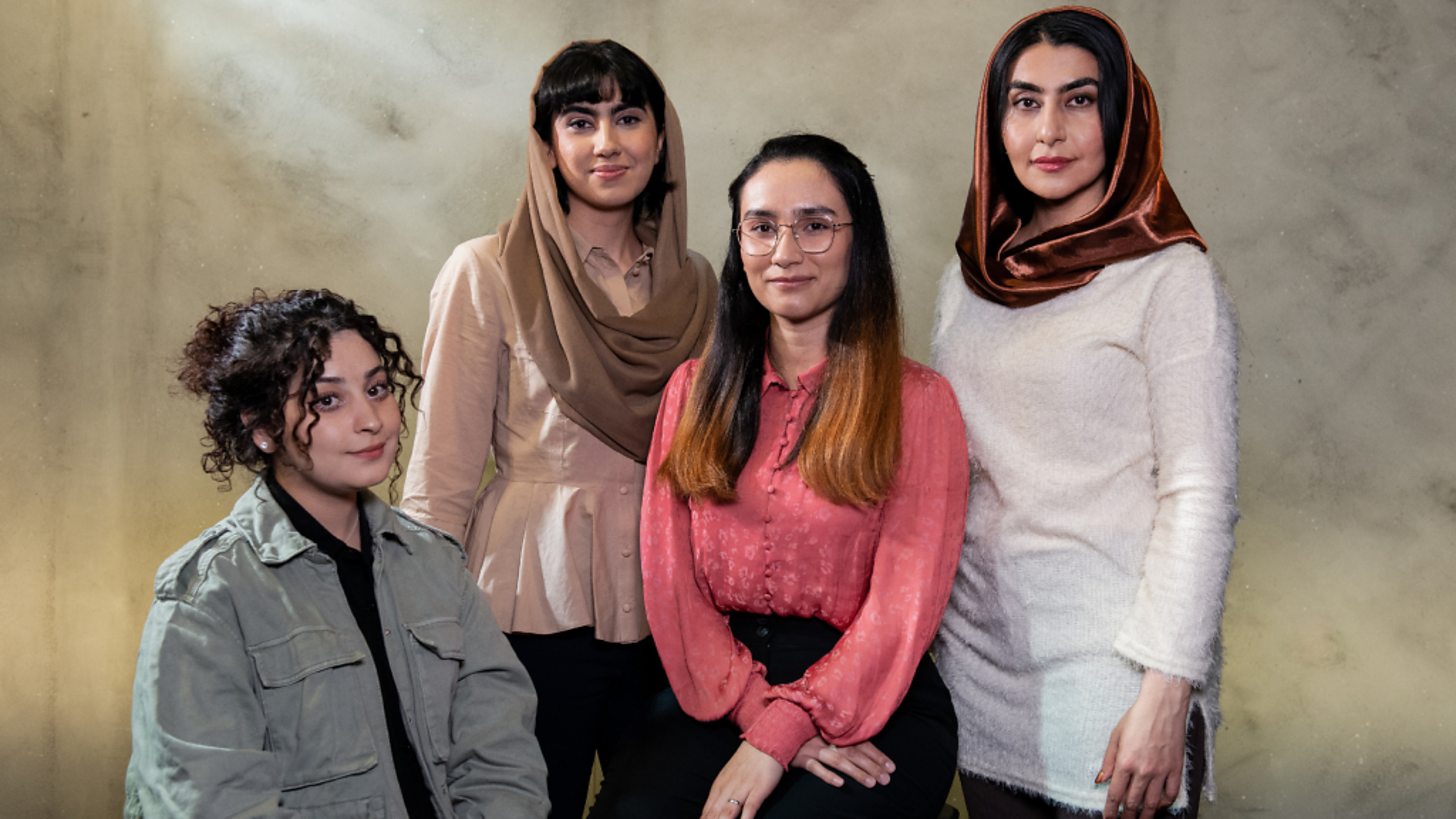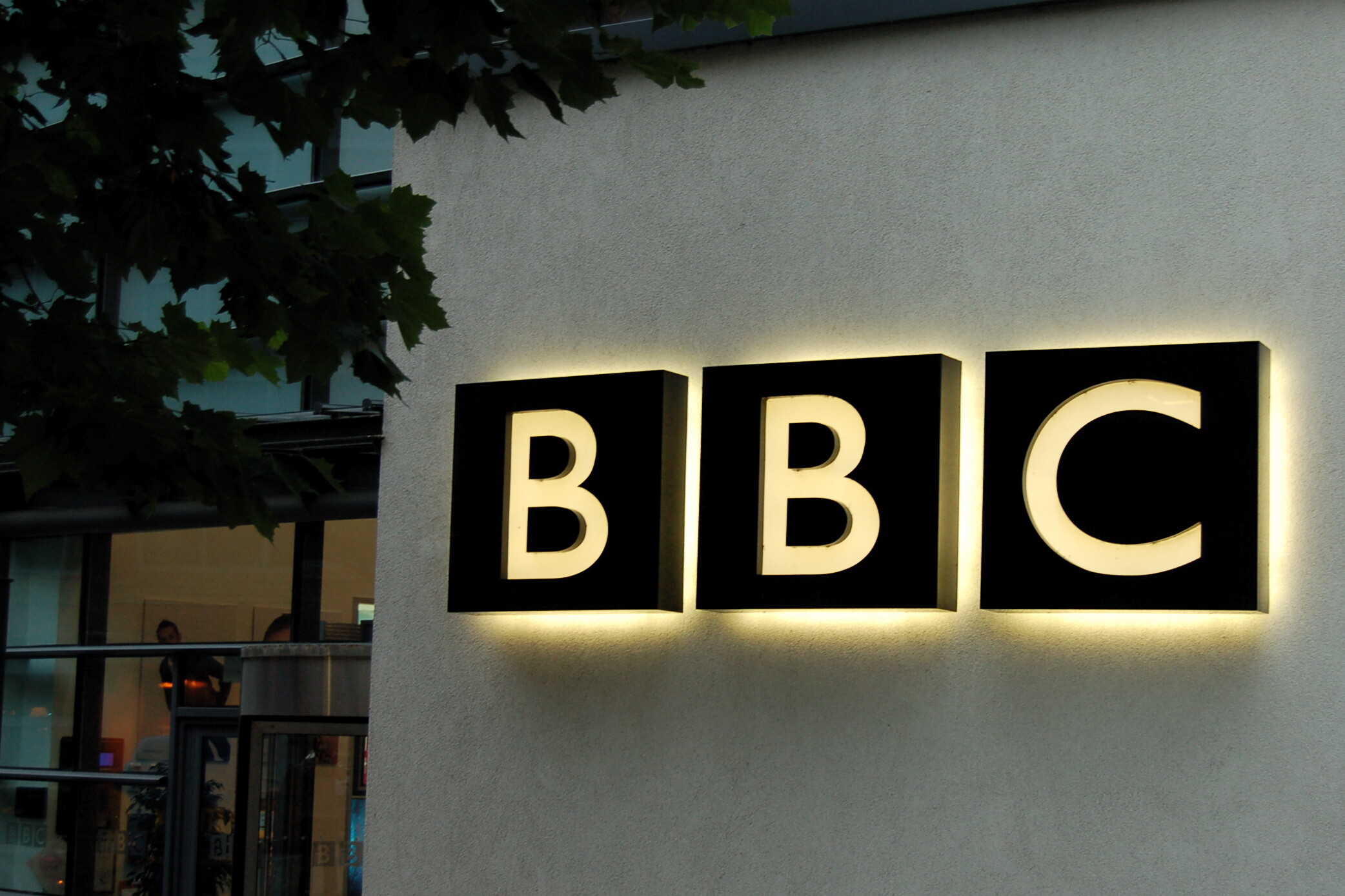INTERVIEW
“We are being massively outspent”: BBC WS on competition in the international media market
14th April 2025
BBC News’ Global Director on why the UK government should fully fund the World Service, how to convince British audiences of the need for the World Service, and filling the gap left by USAGM.

Jonathan Munro was only appointed Global Director for BBC News and Current Affairs – overseeing the World Service – in September 2024. But during his time in the role, he has already announced a restructure, made cuts, and negotiated a new settlement which will see the UK government contribute £100 million to fund the World Service.
He has stepped into the job at a time when the challenge facing international independent public service media has never been greater. The task to counter mis- and disinformation and propaganda remains urgent, but the budget of an organisation like the World Service is just a fraction of what the Russian and Chinese states are investing in their international media machines. Other public service-oriented international media groups, such as entities underneath USAGM, like VOA or RFA, are losing their funding, leaving gaps – online and on-air.
Munro spoke to PMA’s editorial manager, Harry Lock, for a recent episode of Media Uncovered, PMA’s podcast, in which they discussed the competition the World Service faces from its Chinese and Russian counterparts, what the demise of USAGM means for the global information ecosystem, and how the World Service is moving teams out of London, towards the rest of the world.
This interview has been edited for brevity and clarity.
HL: Is the BBC World Service still needed? And if so, why?
JM: I actually think the BBC World Service is needed now more than more than ever before. We’ve seen an incredibly aggressive march of misinformation and disinformation into the media ecosystem over the last five, 10 years. And much of that is based on malicious forces who do not believe in or sponsor impartial or free or fair journalism.
And if you think about the implications of that, they are on real people who are consuming that content all over the world, who are exercising choices about how they want to be governed and how they want to spend their money and who they want to support in a democracy if they happen to be lucky enough to live in a democracy.
And they’re basing those choices on a range of information, much of which is not accurate. And given the prevalence of digital media, it’s in the homes, on the laptops, and in the smartphones of tens, hundreds, thousands of millions of people around the world.
To have trusted and reliable sources of news and information, impartial analysis of world events, is absolutely crucial, and the technology that allows disinformation and misinformation to march into people’s lives without boundaries or checkpoints is also the very technology that can allow the truth to get to people too. So to be in those environments, in those news ecosystems is absolutely crucial.
HL: And how do you think the World Service is currently placed to deal with that challenge?

JM: Well, first of all, the scale of the challenge is enormous, not least because state actors, who have different motives from our own, are spending huge amounts of money. I mean, we calculate – it is a calculation, not a precise known figure because they’re not transparent with their spending – that the state media strategies of Russia and China, when you put them together, equates to about 8 billion pounds a year at current prices, expenditure around the world. Now it’s publicly known that we cost, the BBC World Service costs less than 400 million pounds a year of licence fee and government money. So the scale of the challenge is summed up really in those figures.
How are we doing in terms of meeting it? Look, we’re doing really well, but there’s more we can do. Why do I say we’re doing really well? Because we are the biggest provider of international news in the world, if you measure that by reach. We were pretty much neck and neck, actually, with the US media services under USAGM. But as you will know, they’ve had their funding paused and potentially curtailed completely. So we are now, by some distance, the biggest provider.
We work in 42 languages, and all of the audience data, which we collect on a regular basis, shows consistently that we’re the most trusted news organisation available on earth, that our brand has the highest recognition of any comparable brand on earth, and that we are depended upon, relied upon by audiences of need all over the world.
That might be the girls of Afghanistan who need an education, and we provide it through specific programmes. It might be the people of the Middle East who are in the middle of an extremely polarising, difficult and deadly conflict right now. Or it might be people in parts of the world that are suffering from climate change or economic deprivation. who are thinking of migration or thinking of, how to bring their families up in a way which does them justice. All of those people come to the World Service in huge numbers, and we know that our services are hugely appreciated but there is a lot of the world that we don’t currently reach in local languages which we would like to expand into, and we’re looking at how we can best deliver that service in the future.
Listen to Jonathan Munro on PMA’s podcast
HL: So not too long ago, the World Service announced a restructure. Can you talk to me a bit about this, and how exactly it is going to work? And what results are you hoping to see at the end of it?
JM: Yes, it is an internal restructure and it’s been brought about because the needs of an organisation in the modern media world change all the time. So, we need to constantly look at the way we’re delivering to audiences.
What’s not changing is what it is we’re trying to deliver, which is impartial, independent, free journalism and other programming that wraps around that, whether that’s online or on air. We’re not changing the ambition that we will deliver more of that digitally in years to come, but we also recognise that some audiences still prefer to consume in more traditional methods, and radio in particular is a very resilient medium for us. It’s our biggest delivery platform even now.
But we are changing the way we operate internally because my feeling is that we need more people in roles that are going to help craft the World Service’s future who live in and are expert on their regions. So, we’re organising ourselves around six regions in the world. And the leadership in those regions will be from and off those regions.
“The BBC is by a mile the most recognised brand that the UK exports. So, there’s an economic and trading and status benefit to all that too. And we need to work harder to make sure that our funders, whether they are licence fee payers or taxpayers, understand and appreciate that.”
And this is a really logical continuation of something we started some years ago, which is to make fewer of our products in London and move them to the relevant parts of the world. So, for example, we’ve significantly increased the number of people who work for us in Africa: in Nairobi, in Lagos, in Abuja, in Dakar. And we’ve reduced the number of people who work for African audiences in London.
So, the people who are making the journalism are living and breathing the stories that they are reporting on. There are some exceptions. We can’t move our Persian service to be close to their audiences in Iran. It’s simply not a viable or safe proposition. And actually, more than 300 of our staff work in exile, that is to say, they’re working in countries that are not part of their market, but that’s because their market is unsafe for journalists.

HL: You mentioned that quite frightening gulf between what the World Service receives versus what RT or CMG or whoever receives. The Islamic Republic of Iranian Broadcasting, I noted, recently got a 50% increase in its funding as well. So clearly, more autocratic states are looking to international media as a way of sort of exerting some level of influence. Is it viable that the World Service can retain its current place in the world on its current budget?
JM: Well, the UK government funds about a third of our costs and the licence fee payer funds about two thirds. That’s an increase actually on where we were last year due to a good discussion that we had with the government about the importance of the World Service and the effect of licence fee on overall BBC spending.
But as I mentioned earlier, we are being massively outspent by our international rivals. That’s not a theoretical problem, it’s a real problem. … For example, some of our radio services in the Arabic language were withdrawn a number of years ago, and the Russians and Chinese have moved into that space. The Russians actually have our old wavelength in Lebanon and are putting out propaganda from Moscow in place of impartial news. And that’s clearly a cocktail of instability in that part of the world, which is already volatile enough.
We can make a case, and we will make a case, to the British government and to the British people that the role of the BBC externally around the world is absolutely crucial to Britain’s place in the world.
So we want to see the government taking greater responsibility for the overall funding. We’d like to see the whole of the World Service returned to direct government funding, ideally in the near future – there’s a BBC Charter renewal in 2027.
We can take a significant ambition into those conversations if the funding is there to match it. Now that ambition can be to significantly increase our reach it can be to get to more audiences of need, it can be to get to more women, it can be to get to more younger audiences, or most likely a combination of all of the above. And that can only really be done not just with more money, but with sustained money, because the problem with the system that we currently have is each government funding round, every financial year is a new negotiation. And it’s very difficult to build a long-term investment plan for the World Service if the funding is unstable year by year.
Latest Features
HL: How do you explain to British people why they should be funding an international service?
JM: So I think that there are two or three important points here. The first is that we need to be better at labelling the journalism that we derive from the World Service when it comes into the UK marketplace. We perhaps aren’t as brazen as we should be about saying to the audience in the UK that the stuff has come from the World Service, but we’re working on projects and exposure for that that will raise the profile of that journalism quite significantly.
HL: As in actually labelling it, “this is World Service content.”
JM: Yes, possibly. And I think celebrating what we can do because the World Service is you know embedded in most newsworthy parts of the world.
So if you look, for example, at what we’ve done in Russia, Ukraine, one of the most distinctive bits of journalism we’ve done is a project called Counting the War Dead, which is based on BBC analysis of verifiable deaths suffered by Russian forces on the front line. Nobody else is doing that. And we are pushing that into the UK as journalism that UK audiences can see and hear. And I think there is a case for strengthening the branding of that around ensuring that people know that it’s come from the World Service.
“There are some parts of the world where we don’t operate … and USAGM have been more specialised in what they’ve done. We don’t have an immediate set of actions in terms of plugging those gaps. But … if there are things that we can do in the interest of making sure that the free media is available to those audiences, I’m really keen that we find a way of doing them.”
I think there’s also a broader case that if you work in lots of walks of life in the UK, the chances are that the industries you work in have better trading relationships with the world at large, they are more secure in their status in the world at large because of the role of the World Service.
And if you look at the way that the UK shows up overseas, so to speak, there are some really powerful brands that the UK has. The Premier League, for example, is a really powerful brand. The Royal Family is a really powerful export. There are countless celebrities and big figures. None of them are remotely as well-known or as well-recognised as the BBC. The BBC is by a mile the most recognised brand that the UK exports.
So, there’s an economic and trading and status benefit to all that too. And we need to work harder to make sure that our funders, whether they are licence fee payers or taxpayers, understand and appreciate that.

HL: Returning to mis- and disinformation, and seeing the World Service as one of the most effective tools around the world, not just here in the UK, at countering that. Given the news about USAGM, I wonder if you’re able to reflect on that and what that might then do to the broader ecosystem of information?
JM: I think it’s always something for us to regret when free independent media is reduced in size or scope. We’re not, as an impartial organisation, going to have a commentary on policy decisions by the US government or indeed any other government. Our job is to report and analyse on those. But it’s a matter of public record that we’re proud of, that we believe in freedom of speech, we believe in impartial journalism, we believe in servicing audiences, and we also believe in plurality. And that means that not everybody needs to receive impartial journalism from the BBC. There are plenty of other organisations out there, and we work collaboratively with them, because plurality of voice is an important part of the media landscape.
On USAGM, in particular, [through] the services that they fund – through Voice of America and Radio Free Europe, Radio Liberty, Radio Free Asia and so on, there’s a few others – they reach a significant number of people. And the job of all of us in the independent media and the free media is to do our very best to ensure that the consumers of those products have alternatives to go to. Now, in some parts of the world – many parts of the world – we operate in both English and in languages in the same sort of territories as USAGM-funded organisations have done until now. And we hope that many of the audiences who’ve been loyal to USAGM will find other homes. And of course, I very much hope that some of them will come to the BBC because I think they’ll enjoy and appreciate the product that we make.
There are some parts of the world where we don’t operate, other than in our global English feeds. And USAGM have been more specialised in what they’ve done. We don’t have an immediate set of actions in terms of plugging those gaps. But of course, we’re looking at the shifting sands that this represents. And if there are things that we can do in the interest of making sure that the free media is available to those audiences, I’m really keen that we find a way of doing them.
But we also have to be realistic here. We are dealing with a confined and limited BBC budget. We can’t spend any more money on reaching areas that USAGM would previously have serviced. So we have to cut our cloth. And what we’re seeing here is a change of the landscape. We’re seeing a change of the environment globally, not in a good way. And our job is to react to that in a professional and proper way, putting the audiences at the heart of the decisions that we take.
HL: Because the risk is with obviously what’s happened, when services are cut, who then fills that space – as what happened with BBC Arabic as you mentioned – is a real risk. And there is the threat that that might happen here.
JM: There’s a very real threat about that. And the way we reach audiences at the World Service, very similar to USAGM and others, is that we have a range of different deliveries. We deliver some things on our own platforms, so-called owned and operated: something that looks and feels like the BBC, because it’s got the BBC brand on it, like a BBC website, for example.
But there’s an awful lot of delivery on partner broadcasters where we provide a bulletin, programme, a discussion or whatever into a schedule of an existing channel. And where that’s the case, USAGM products coming out of the market has left a gap, literally a gap in the schedules, a hole in the running orders of the programmes. And in those cases, it will be the case that unless other free media steps up, that those spaces will be occupied by state actors with different values.
And ultimately, the long-term implications of that are serious. And we’ve seen that already play out in parts of the world where we’ve withdrawn for financial reasons from relationships with partners or certain platforms. And we’ve seen Chinese state broadcasting, for example, moving in quite a big way in parts of Africa. And the consequences of that are not necessarily consequences that we’re worried about today or tomorrow, but they are consequences that play out for years and even generations to come.
And that’s why acting quickly where there are gaps is important. And acting quickly is not necessarily free of charge. So, we need to manage those different pressures on us. And the landscape is changing and therefore the challenges and the questions we need to ask ourselves are changing with it.
Related Posts
27th March 2025
BBC statement on detention and deportation of Mark Lowen
BBC journalist Mark Lowen reporting on…
19th March 2025
PMA & others urge US to protect press freedom after USAGM order
More than 20 global media freedom…
18th March 2025
Why USAID cuts highlight the role of public media
The USAID funding cuts and its impact…





